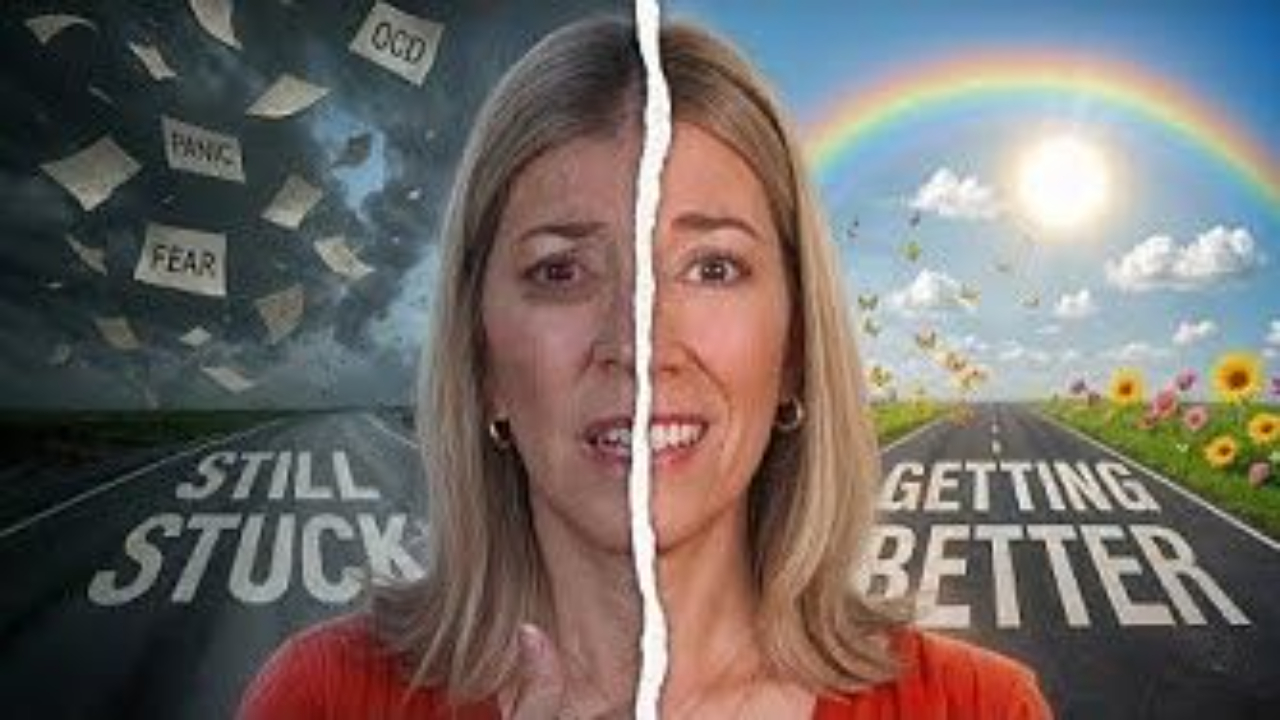
Overcome OCD & Anxiety: The ATTITUDE shift you need for lasting RELIEF
Imagine not just confronting your biggest fear but welcoming it into your life. It may sound counterintuitive, but if you truly want to conquer anxiety, you must be willing to embrace it. Everything inside of us screams to avoid discomfort, to stay safe, to escape anxiety. However, research and experts in the field of anxiety and OCD have discovered that the real path to overcoming these challenges lies in facing, and even inviting, discomfort into our lives.
Anxiety thrives on avoidance and a desire for certainty. When we try to protect ourselves through avoidance, reassurance-seeking, or compulsive behaviors, we only reinforce anxiety’s grip. To truly take control, we need to shift our perspective by embracing uncertainty, rejecting safety behaviors, and engaging in exposures that confront our fears.
The "Bring It On" Approach
Dr. Reid Wilson, author of Stopping the Noise in Your Head, advocates for a bold, paradoxical approach to anxiety and OCD. He encourages a “bring it on” attitude—one that sees anxiety not as an enemy to avoid but as a challenge to embrace. He compares anxiety to a competitive game, where you actively face your fears instead of retreating.
Imagine anxiety as an opponent trying to fake you out. Instead of backing down, you say, “Bring it on, anxiety, hit me with your best shot!” This attitude puts you back in control, allowing you to face fears head-on and dismantle their power.
For example, someone with contamination fears can start willingly touching surfaces they once avoided. Over time, the fear shrinks as they realize it no longer holds the power it once did.
Embracing Uncertainty
Dr. Jonathan Grayson, author of Freedom from Obsessive Compulsive Disorder, teaches the power of accepting uncertainty. Anxiety often feeds on the need to know for sure that everything will be okay, but the reality is that we can’t have that kind of certainty. By accepting uncertainty and resisting the urge to seek reassurance or engage in compulsions, we weaken anxiety’s control.
Grayson’s approach involves embracing the possibility that "maybe" something bad could happen, but choosing to live in the present without constantly trying to guarantee safety. This shift in mindset can bring immense relief, as it frees individuals from the exhausting cycle of checking and rechecking.

Are you struggling with OCD or Pure O? Do obsessive thoughts, rituals, and compulsions take over your life? Has it been hard to find a specialist to help you?
If you want to get your life back from OCD or Pure O,
this course is for you.
Mindfulness and Non-Judgmental Awareness
John Hershfield, author of The Mindfulness Workbook for OCD, takes a mindfulness-based approach. His method emphasizes that anxiety-provoking thoughts are just thoughts. By adopting non-judgmental awareness, you can observe your thoughts without attaching meaning to them. Instead of trying to stop or control anxious thoughts, Hershfield encourages individuals to simply notice them with curiosity rather than judgment.
This subtle shift allows you to detach from anxiety, reducing its impact over time. As you practice observing your thoughts rather than reacting to them, their power diminishes.
The Power of Acceptance
Anxiety and OCD often try to convince us that it's terrible to feel anxious, that we must resist it at all costs. Dr. Winston, in What Every Therapist Needs to Know About Anxiety Disorders, suggests the opposite. Rather than resist anxiety, we can accept it as part of the human experience. Acceptance doesn’t mean giving up but recognizing that anxiety’s presence doesn’t have to control our lives.
By adopting an attitude that says, “It’s okay to feel anxious,” we diffuse the emotional response that feeds anxiety. This paradoxical approach helps reduce the intensity of anxiety’s grip over time.
Shifting Your Attitude Toward Anxiety
The next step in overcoming anxiety and OCD is to ask yourself: What would happen if I changed my attitude towards anxiety? What if, instead of avoiding my fears, I welcomed them and embraced the uncertainty? With the right tools and attitude, you can start to take back control of your life.
Recovery is possible. Anxiety may seem powerful now, but by shifting your perspective and adopting new strategies, you can live a more peaceful and fulfilling life.
Remember, you don’t have to do this alone. Seek support and resources to guide you along the way.
Let's Keep in Touch
Subscribe to My Newsletter
We hate SPAM. We will never sell your information, for any reason.







